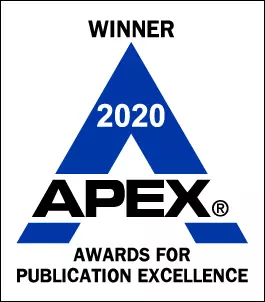Your employer is already investing in your training and development. How willing are you to invest in yourself?


Having been in professional services for over 35 years, I've had numerous interactions with new staff members, whether they work for a client or for me. As such, I've pretty much "been there - heard that" for comments new folks will make while settling in. Bottom line - it takes a lot for someone to do or say to stand out to me. Recently, though, I had one of those rare standout moments.
"Why Wouldn't I Want to Invest in Myself?"
My most recent hire is my new Executive Assistant (EA). Actually, she is more of an EA-in-Training, since this is her first time functioning as an EA.
Shortly after she'd finished her general orientation and onboarding paperwork, she and I sat down to discuss the position and how she could best help me. Knowing she lacked EA experience, I offered to share a few articles, tools, and books I'd gathered over the years to help her learn the ropes. What she said next REALLY surprised me - "Todd, that's good and I'll take whatever you believe will help me - however, I've already ordered two books on how to be an EA." Mind you, this was early on her second day with the firm!
Intrigued, I asked her to tell me what led her to do this. Here are her key points:
- I knew being an EA is a new type of job for me, and I wanted to make sure I understood what the work entailed.
- I've always believed in doing research to learn about any new responsibilities I've been given.
- I wanted to make sure I met your expectations as your EA.
- I can learn a lot from a few books, and they were not that expensive.
- Why wouldn't I want to spend some money and invest in myself?
Her last comment is what REALLY blew me away! In fact, it reminded me of some advice I'd heard about 33 years ago.
Advice From a Long-Ago Client
I was about two years into my first job after graduation - I was an auditor in the Greensboro office of Arthur Andersen & Co. I was considering whether to leave or stay, and I had connected with a headhunter to explore other options.
Working late one evening at a client location, I had just finished some discussions with the controller, Dick. I had worked with Dick numerous times over the past two years - we worked well together and occasionally shared brief personal conversations. That night, I mentioned a question my headhunter had recently asked me - "What are you doing to invest in yourself?" Dick thought a moment, then made a statement I'll never forget - "Todd, let me pass along some advice one of my recruiters once shared with me - if you're not willing to invest in yourself, why should any company want to invest in you?" I don't remember exactly what I said - it was likely along the lines of, "Wow, Dick, that's a great point - I'd never thought of things that way. Thanks for sharing that!"
"If You're Not Willing to Invest in Yourself ... "
Coming back to my newest staff member. She's a Millennial who graduated magna cum laude from a solid small university, with a double major in two liberal arts disciplines. While she'd been working since graduation, she'd been underemployed and was itching for the opportunity to show what she was really capable of doing. I’ve known her and her family through church for over 15 years, and realized she was looking to make a change when she asked me to be a character reference for her. Of course, I readily agreed.
As noted in an interesting guide for employers, Speaking Millennial: Employee Communication for a Changing Workforce, "Millennials may be the most studied generation in history." The guide includes a summary of six key Millennial traits identified by Gallup in their research:
Millennials . . .
- Don’t just work for a paycheck – they want a purpose
- Are not pursuing job satisfaction – they are pursuing development
- Don’t want bosses – they want coaches
- Don’t want annual reviews – they want ongoing conversations
- Don’t want to fix their weaknesses – they want to develop their strengths
And ...
- It’s not just my job – it’s my life
Reviewing these qualities, I now see clearly how being willing to invest in oneself supports each of these traits.
I also see these characteristics in both my new EA and my daughter, who has been in the workforce just over 2 years. (My son graduates from NC State University in about 6 weeks, so it will be interesting to see how he develops in his career.)
Assessing Investments in Yourself
Here are a few questions to consider when assessing the investment you're making in yourself:
- What types of investments am I making? Are these hard skills, soft skills, experiences, or something else?
- How am I going about making these investments? Am I reading books, listening to podcasts or TED Talks, taking a class, seeking on-the-job training, working with a coach, traveling, or doing something else?
- For whose benefit am I making these investments? Is it merely for my own satisfaction and fulfillment? Is it to improve in my current position? Is it to qualify myself for my desired position, which could include going out on my own?
Hopefully, you can already answer these questions - if not, let me suggest investing the time needed to think about and develop your answers.
Investing in Yourself
That advice from my long-ago client, Dick, changed my outlook on my career, and how I needed to develop myself - over and above the investment my employer was making - to change my career arc and develop my natural talents in information systems. Those initial investments I made in myself, and which I have continued to make in myself, have enabled me to start and run my own firm while doing interesting projects for nearly 30 years.
My Millennial EA didn't need that wake-up call from a colleague or a friend - she seems to view investing in herself as something she and everyone she works with needs to do. In fact, I do see some aspects of that self-improvement mindset in every Millennial who has worked for my firm - and I believe that's a mindset all of us could stand to develop. After all, if you're not willing to invest in yourself, why should your employer be willing to invest in you?
Sincerely,

Todd L. Herman






